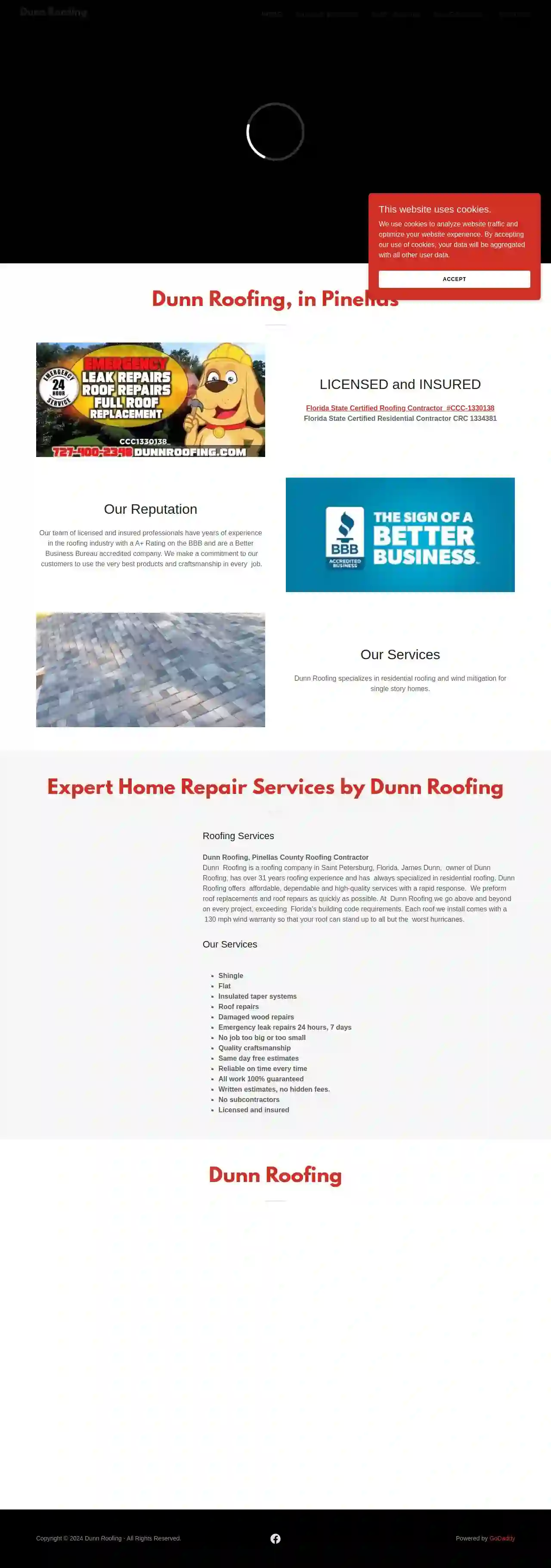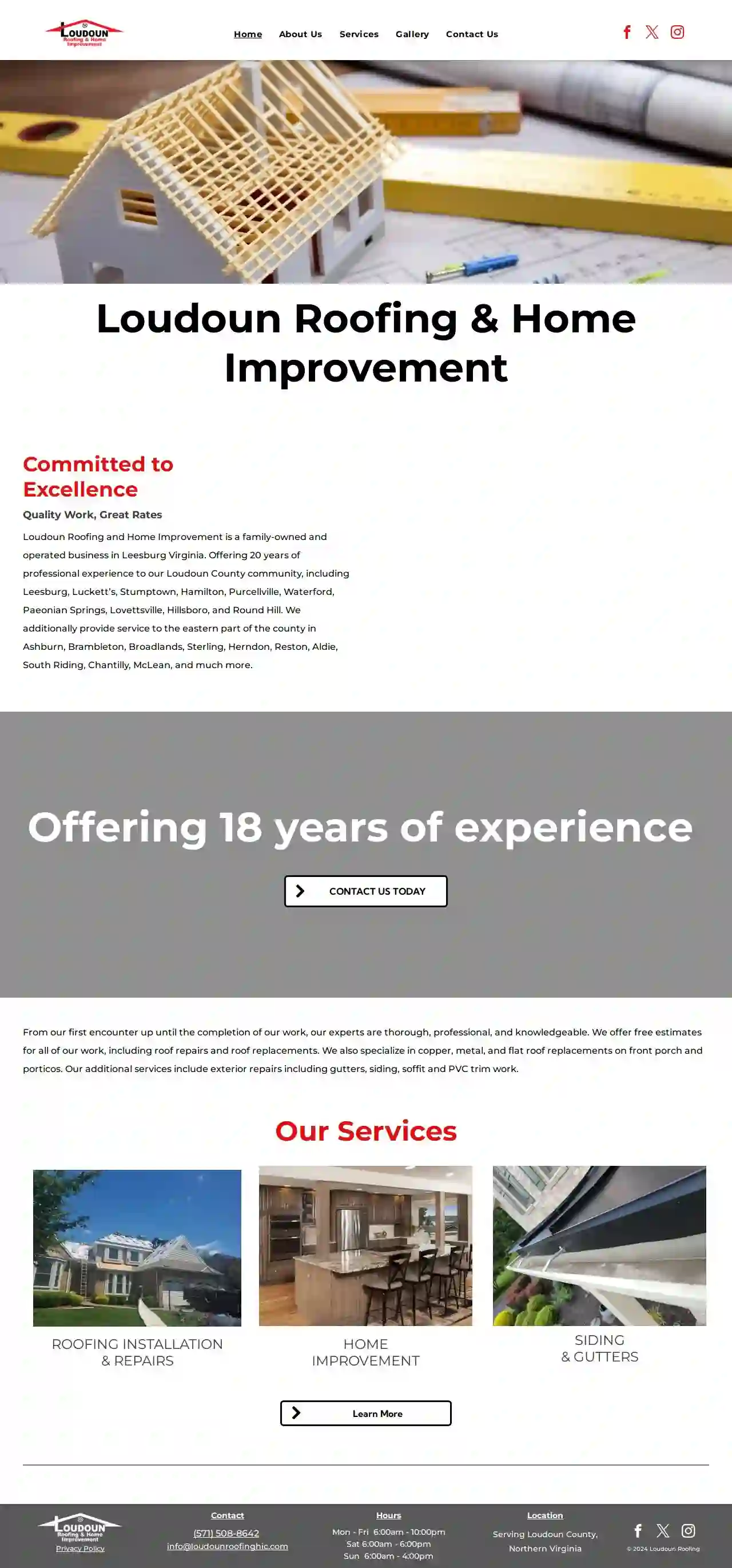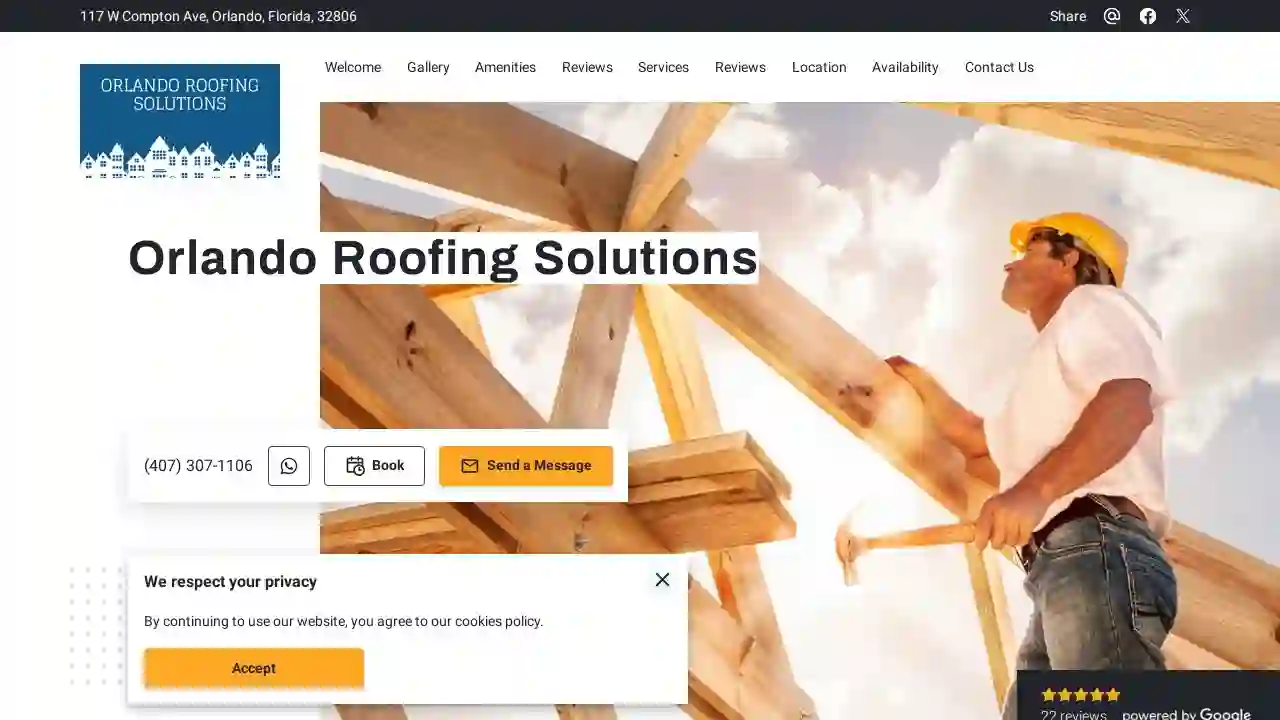Roofing Companies Apollo Beach
Top Roofing Companies in Apollo Beach
Receive up to 3 Roofing Contractor quotes for your project today! Compare profiles, reviews, accreditations, portfolio, etc... and choose the best service.

K1 Roofing LLC
4.936 reviewsDeltona, 32738-9395, USK1 Roofing LLC is the leading local roofing company. We provide a complete range of services defined by quality, innovation, and expertise. With years of experience, we’ve developed a strong reputation for our masterful craftsmanship and committed customer service, always going above and beyond to meet our clients’ needs. For quality roofing from trusted professionals, we are the team for the job. We’re more than roofers: We’re masters of our craft. We combine a comprehensive understanding of our field with rigorous training, education, and experience. Our high level of expertise pays off in dividends for our clients. It allows us to deliver a superior standard of service, more efficient workmanship, and stellar results on every job. As a roofing company, we strive to develop smart solutions that save our customers time and money. We stick to our deadlines, and we consistently stay well under our clients’ budgets while ensuring excellent quality control. Rest assured: When you choose us, you can take comfort knowing you’ve chosen well. You’ve chosen the best in the business. We provide a complete suite of services for all your roofing needs. From new construction projects to old home restorations, we can do it all. No matter the size of the job, you can count on us to see it done right. We can help with: Roof repairs, New roof construction, Roof replacements, Preventative maintenance, Roofing inspections, and more. We tailor our services according to each client using a thorough consultative process. As a roofing contractor, we take the time to get to know our clients. We take the time to learn about their needs, their wants, and their precise specifications. That way, we can provide a more personalized service experience based on their goals. Don't hesitate to get started with us by contacting us today.
- Services
- Why Us?
- Gallery
Get Quote
Dunn Roofing
4.719 reviewsSaint Petersburg, USDunn Roofing, a licensed and insured Florida State Certified Roofing Contractor, has over 31 years of experience in the roofing industry. With an A+ Rating on the BBB and Better Business Bureau accreditation, we commit to using the best products and craftsmanship in every job. Our team of professionals specializes in residential roofing and wind mitigation for single-story homes, offering affordable, dependable, and high-quality services with rapid response. We perform roof replacements and repairs quickly, exceeding Florida's building code requirements. Each roof we install comes with a 130 mph wind warranty. We go above and beyond on every project, providing same-day free estimates, reliable on-time service, and 100% guaranteed work with written estimates and no hidden fees. We are a family-owned business with no subcontractors, ensuring quality craftsmanship and personalized service.
- Services
- Why Us?
- Accreditations
- Our Team
- Gallery
Get Quote
Clear Roofing Solution
510 reviews7041 Grand National Dr STE 211, Orlando, 32819, USClear Roofing Solution is the premiere roofing team serving all of Central Florida. Our team of fully-certified professionals is dedicated to providing the highest quality service and going the extra mile to make sure you are 100% satisfied with the final result. We are known for our punctuality, precision, and top-notch customer service. Call us today to schedule a consultation. Quality Work, Great Rates Clear Roofing Solution offers reliable, high quality roofing services at unbeatable prices. With years of experience and expertise, our team is fully qualified to provide expert consultation, installation and repair services for all residential and commercial roofing needs.
- Services
- Why Us?
- Gallery
Get Quote
Fiddler's Roofing
4.9111 reviews521 W Miller St, Orlando, 32805, USTop architectural Roofing Contractor in Orlando. Fiddler's Roofing of Orlando – Since 2003. The Best Roofing Company in Central Florida. Book An Inspection Now. Fill out the form below and a representative will get back with you shortly. Full Name, Phone, Email, Address, What Service Are You Interested In?, Submit. Fiddler's Roofing Has Been Serving Central Florida Since 2003.
- Services
- Why Us?
- Accreditations
- Gallery
Get Quote
Loudoun Roofing & Home Improvement
4.842 reviews1000 N King St, Leesburg, VA 20176, 20176, USLoudoun Roofing & Home Improvement is a family-owned and operated business in Leesburg Virginia. Offering 20 years of professional experience to our Loudoun County community, including Leesburg, Luckett’s, Stumptown, Hamilton, Purcellville, Waterford, Paeonian Springs, Lovettsville, Hillsboro, and Round Hill. We additionally provide service to the eastern part of the county in Ashburn, Brambleton, Broadlands, Sterling, Herndon, Reston, Aldie, South Riding, Chantilly, McLean, and much more. From our first encounter up until the completion of our work, our experts are thorough, professional, and knowledgeable. We offer free estimates for all of our work, including roof repairs and roof replacements. We also specialize in copper, metal, and flat roof replacements on front porch and porticos. Our additional services include exterior repairs including gutters, siding, soffit and PVC trim work.
- Services
- Why Us?
- Our Team
- Gallery
Get Quote
Property Leak Repair Roofing
4.920 reviewsinsert address line 1, insert address line 2, insert street address, Tampa, insert post code, USTop Roofer in Tampa. Full service roofing, new & re-Roofs, roof repairs, fast emergency service. Give one of our team a call today!
- Services
- Why Us?
- Accreditations
- Our Team
- Testimonials
- Gallery
Get Quote
TSpark Enterprises
4.9137 reviewsTallahassee, USTSpark Enterprises, LLC is a professional roofing and construction company serving Tallahassee, FL, Thomasville, GA, and surrounding areas. With over 15 years of experience in the industry, we specialize in residential and commercial roofing, construction, and consulting services. Our team is licensed and certified, with a focus on providing high-quality customer service and executing services that meet our clients' needs and expectations.
- Services
- Why Us?
- Our Team
- Testimonials
- Gallery
Get Quote
Orlando Roofing Solutions
4.914 reviews117 W Compton Ave, Orlando, 32806, USWelcome to Orlando Roofing Solutions, your trusted partner for all your roofing needs in Orlando, Florida. Whether you need a small patch job or a completely new roof, our team of dedicated roofers are here to help. We can easily travel to you wherever you are in Orlando, and our competitive prices mean you'll be completely satisfied. We are experts in tiling, shingles, damage repair and more. Our team is fully trained and experienced, and we approach all our projects with the same commitment and professionalism. We're proud of our hard-earned reputation for skilled workmanship and attention to detail. Our dedicated team are courteous, approachable and fully up to date with the latest building regulations, ensuring all projects are completed to the highest standard.
- Services
- Why Us?
- Testimonials
- Gallery
Get Quote
ROOFING NATION LLC
525 reviews10830 NW 138th St #1, Hialeah Gardens, 33018, USAt Roofing Nation LLC, we provide quality roofing products and services in wholesale form for roofing suppliers across the nation. Our commitment to excellence ensures that our customers are always satisfied with the products and services we provide. We specialize in Flat, Shingle, Tile, Metal, and Galvanized Roofing Systems, committed to delivering quality services and products. Our experienced team has completed millions of sq. ft. of residential and commercial projects. We use the latest technologies, materials, and techniques to ensure that your roof is strong, durable, and long-lasting. No matter the size or complexity of the job, we are confident that we can provide you with the best roofing services available.
- Services
- Why Us?
- Accreditations
- Testimonials
- Gallery
Get Quote
Hightower Industries
5126 reviewsPensacola, USAt Hightower Industries LLC., we strive to exceed your expectations on every project. We are a trusted, local roofing and general contractor with over 50 years of experience. Our team of specialists provides unrivaled expertise and innovative solutions, customized to fit every need in the most cost-effective manner. We are dedicated to elevating your home's potential with our unmatched expertise in roofing and solar solutions. We adhere to the highest industry standards and the latest building codes, giving you peace of mind with every project. From new roofs to solar integrations, we are here to make it happen! We also specialize in commercial roofing and solar solutions. Lean on our longstanding reputation as a reliable local contractor to fulfill all your roofing and solar needs.
- Services
- Why Us?
- Gallery
Get Quote
Over 17,196+ Roofing Companies registered
Our roofing pros operate in Apollo Beach & beyond!
Roofyng.com has curated and vetted the Best Roofers near Apollo Beach. Find the most reliable pro today.
Frequently Asked Questions About Roofing Companies
- Experience: Companies with a solid track record and years of experience in the industry.
- Licensing and Insurance: Verify they are properly licensed to operate in your area and carry adequate insurance to protect you from liability.
- Certifications: Look for certifications from reputable organizations, demonstrating expertise in specific roofing materials or techniques.
- Positive Reviews: Check online reviews and testimonials from previous customers.
- Professionalism: Choose a company that communicates clearly, provides detailed estimates, and has a courteous and responsive team.
- Hot Climates: Opt for light-colored or reflective roofing materials to reduce heat absorption. Consider tile roofs for their thermal mass and heat resistance.
- Cold Climates: Ensure your roof has adequate insulation and ventilation to prevent ice dams and moisture buildup. Metal roofs can shed snow effectively.
- High-Wind Areas: Choose roofing systems with high wind ratings and properly installed hurricane straps or clips to enhance wind resistance.
- Areas with Heavy Rainfall: Ensure your roof has proper drainage and a waterproof membrane to prevent leaks.
- Leaks or Water Stains: Water stains on ceilings or walls, dripping water, or dampness in the attic.
- Missing, Cracked, or Curled Shingles: Inspect for damaged or missing shingles, especially after a storm.
- Damaged Flashing: Look for rust, corrosion, or gaps in flashing around chimneys, vents, or skylights.
- Sagging or Uneven Rooflines: A sagging roof could indicate structural problems.
- Granule Loss: Excessive granules in gutters suggest aging asphalt shingles.
- Moss or Algae Growth: Can trap moisture and damage roofing materials.
How do I find a good roofing company?
How do I choose the right type of roof for my climate?
What are some common signs of roof damage?
What is the difference between a roofer and a general contractor?
Roofer: Specializes in roof installations, repairs, and replacements. They have expertise in roofing materials, techniques, and safety practices specific to roofing.
General Contractor: Oversees and manages entire construction projects, including hiring and coordinating subcontractors, such as roofers, electricians, plumbers, etc. They handle overall project planning, scheduling, and budgeting.
For roofing projects, it's generally best to hire a roofing contractor who specializes in roof work.
How do I find a good roofing company?
- Experience: Companies with a solid track record and years of experience in the industry.
- Licensing and Insurance: Verify they are properly licensed to operate in your area and carry adequate insurance to protect you from liability.
- Certifications: Look for certifications from reputable organizations, demonstrating expertise in specific roofing materials or techniques.
- Positive Reviews: Check online reviews and testimonials from previous customers.
- Professionalism: Choose a company that communicates clearly, provides detailed estimates, and has a courteous and responsive team.
How do I choose the right type of roof for my climate?
- Hot Climates: Opt for light-colored or reflective roofing materials to reduce heat absorption. Consider tile roofs for their thermal mass and heat resistance.
- Cold Climates: Ensure your roof has adequate insulation and ventilation to prevent ice dams and moisture buildup. Metal roofs can shed snow effectively.
- High-Wind Areas: Choose roofing systems with high wind ratings and properly installed hurricane straps or clips to enhance wind resistance.
- Areas with Heavy Rainfall: Ensure your roof has proper drainage and a waterproof membrane to prevent leaks.
What are some common signs of roof damage?
- Leaks or Water Stains: Water stains on ceilings or walls, dripping water, or dampness in the attic.
- Missing, Cracked, or Curled Shingles: Inspect for damaged or missing shingles, especially after a storm.
- Damaged Flashing: Look for rust, corrosion, or gaps in flashing around chimneys, vents, or skylights.
- Sagging or Uneven Rooflines: A sagging roof could indicate structural problems.
- Granule Loss: Excessive granules in gutters suggest aging asphalt shingles.
- Moss or Algae Growth: Can trap moisture and damage roofing materials.
What is the difference between a roofer and a general contractor?
Roofer: Specializes in roof installations, repairs, and replacements. They have expertise in roofing materials, techniques, and safety practices specific to roofing.
General Contractor: Oversees and manages entire construction projects, including hiring and coordinating subcontractors, such as roofers, electricians, plumbers, etc. They handle overall project planning, scheduling, and budgeting.
For roofing projects, it's generally best to hire a roofing contractor who specializes in roof work.